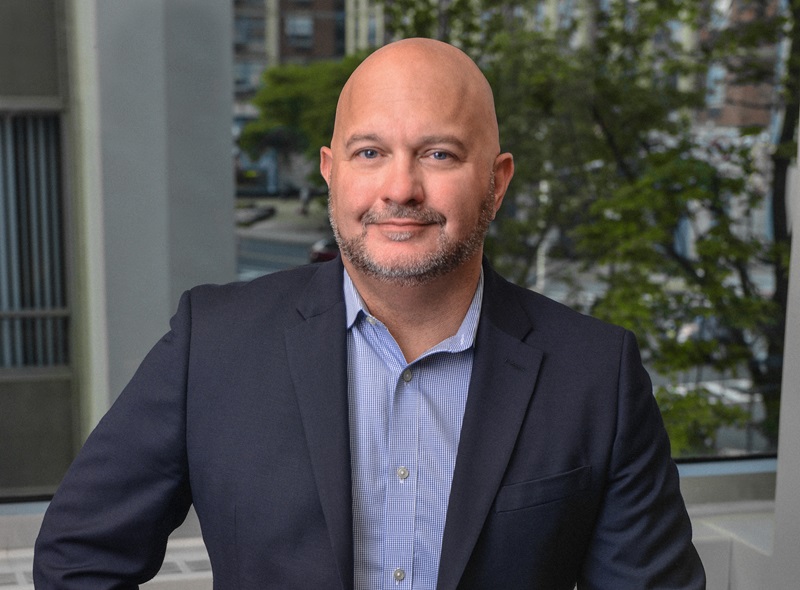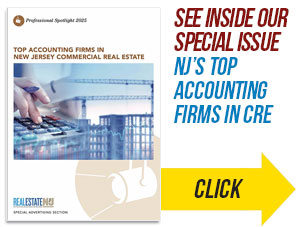By Joshua Burd
If New Jersey’s commercial real estate industry is at a tipping point, as Dan Kennedy feels it may be, he says it’s evident by what’s happening in other parts of the country.
That’s where many of the state’s core developers have increasingly focused their investments, the NAIOP New Jersey CEO said, seemingly at the expense of new projects on their home turf.
“They’re not selling off their assets in New Jersey, but they’re not growing in New Jersey because of the regulatory framework,” Kennedy said. “If things were to get worse … I think we’re teetering on some of these bread-and-butter NAIOP members continuing that lack of new investment in New Jersey and then focusing on other states.”
To be clear, the Garden State remains a coveted market for developers and investors, especially across the industrial and multifamily sectors, where construction has surged over the past decade. But Kennedy believes that could change in the long run if local governments continue to “push away good, strong redevelopment opportunities” because they don’t have the courage to stand up to a few vocal residents, he said. There’s also the very real issue of “state government not really having an appreciation for how valuable what we do is to the state.”

“NAIOP is just a trade association,” he said. “Really, it’s the value that this investment brings to New Jersey in terms of jobs and taxes and redevelopment opportunities. So there’s a lot at stake, no matter who wins in November.”
Those issues are central to the new four-year strategic plan that NAIOP New Jersey unveiled at the start of 2025, a gubernatorial election year, with a focus on advocacy, creating new value for its members and improving the perception that public officials, residents and other outside stakeholders have of the commercial real estate sector. Importantly, it also calls for elevating the chapter’s position in the industry, along with enhancing partnerships with academia and expanding its community service programs.
“We are aspiring to not just be good at playing defense with bad ideas in Trenton,” Kennedy said during a recent interview alongside Greek Real Estate Partners’ Matt Schlindwein, NAIOP New Jersey’s chapter president. “We want to do more with promoting good ideas that come from the industry to make what we do easier and more viable.”
That’s crucial given that “developers, classically, get a bad rap. So we’re getting more active with increasing the understanding and knowledge amongst New Jersey lawmakers and citizens about what value commercial real estate brings to the table that they may not know about intuitively, because all they’re doing is following a thread on their local Facebook page about how developers are the bad guys.”
The blueprint comes at a pivotal time for the industry, with Democrat Mikie Sherrill and Republican Jack Ciattarelli vying to succeed Gov. Phil Murphy and with every Assembly seat up for grabs. It’s also part of a larger refresh of the 55-year-old association, which boasts more than 850 members, following an organizational assessment in early 2024 that was based on confidential feedback from members. The study reinforced the need for strong advocacy, among other findings, while revealing a desire to explore new event topics and new venues.
The chapter has responded over the past 18 months or so, hosting panels on data centers, artificial intelligence and other topics, while hosting its popular President’s Awards and Hall of Fame Reception at the renovated Gateway office complex in Newark. But perhaps most notable was a Sept. 22 forum at Middlesex College in Edison, where Sherrill and Ciattarelli spoke directly to a sold-out crowd of roughly 200 NAIOP members.
“If you were to ask, ‘What’s the number one reason to support NAIOP?’ I think most of our developer members would say advocacy,” said Kennedy, who joined the chapter in 2023. “While we have a pretty good, strong program, we’ve identified ways we can make it even better. We’re going to have a brand new executive branch coming in, so we’re going to be laser-focused on educating them and creating visibility of our CRE priorities.”
As it has in past years, NAIOP’s advocacy will extend to the Legislature and the growing number of bills that impact commercial projects. Kennedy said the chapter was tracking more than 30 measures “that range from annoying to terrifying in terms of impacting the growth of warehouse development in the state,” among other areas, adding that the lame duck period after Election Day will provide “a lot of risk and opportunity.”
NAIOP is also focused on regulatory issues, Kennedy and Schlindwein said, from the new rules over how independent contractors are classified and compensated to the Department of Environmental Protection’s closely watched proposals for developing in coastal flood zones. They also pointed to the potential to make the state’s Municipal Land Use Law “more workable from a process perspective (through) … a lot of small ball ideas” that could be packaged into a legislative update.
The goal is “not a repeal and replace” of the law, Kennedy said, but a surgical approach to ensure that developers are treated more fairly when seeking local approvals and entitlements.
“It’s not that we’re looking for a free pass for approvals, but there are stories you hear that are real — 15 planning board meetings or requiring endless studies … and, instead of saying no, they just try to slow you down and scare you off. That shouldn’t be allowed.”

It’s also critical to build on the industry’s recent policy wins. Among them is a 2024 law to allow architects and engineers to self-certify applications for construction permits, the chapter leaders said, noting that they hope to help the next administration “hit the gas on that concept, so that it can become more of a part of the way we do business.”
“I think that’s probably one of the most important ones,” Schlindwein added, citing its similarity to the landmark 2009 Site Remediation Reform Act, which empowered third-party consultants to spearhead environmental cleanups and helped reduce the DEP’s once-vast backlog of cases. He said there’s a significant appetite for other measures that can “give the development community certainty where there’s currently less certainty because of the review processes.”
“It’s not going to work for all, but I think there’s a lot more permitting and procedures where a program like that could work — where there’s a set of private contractors approved to do reviews,” said Schlindwein, a managing partner with Greek Real Estate Partners in East Brunswick. “And it doesn’t have to take the ability to issue those permits away from the state agencies, but just streamline that review process, because I know that there’s a lot of us that, whether it’s the DEP or the (Department of Transportation), are waiting on different permits that sometimes can just take an inordinate amount of time.”
Broadly speaking, Schlindwein said he doesn’t believe the agencies’ rank-and-file workers are responsible for the delays.
“I think sometimes it’s just the procedures and the workloads that they have and the amount of time that it takes to get through,” he said. “Some of them may see it as a breath of fresh air for the ability to have these independent contractors do their reviews and be responsible for the work that they’re doing, and it gives them an easier time to be able to process the permits.”
Schlindwein, who joined NAIOP in 2009, is the first former member of its Developing Leaders group to rise all the way to chapter president. The association hopes that there are many more to follow as it continues to invest in and foster the industry’s young talent. That includes giving Developing Leaders the opportunity to sit on committees — from the legislative or regulatory affairs committees to the teams that help organize its gala and golf outings. The association is also crafting a formal mentorship program that pairs the young professionals with an industry legend, Kennedy said, “creating an environment where they can connect over the year.”

“The room is changing,” he said, later adding: “We’re starting this now so that when that retirement wave comes from our leaders, we’re well prepared and there are people prepared to step up so it’s not some sort of scramble. And it’s our job to keep us ahead of trends.”
The impact of any current or future strategic plan will be short-lived without the help of the next generation, Kennedy and Schlindwein said. Fortunately, they feel there is a clear track record of young professionals joining the chapter and becoming incrementally more active as their careers advance.
“I think it just clicks — I know it clicked for me,” Schlindwein said. “When you start out, your main goal … isn’t necessarily to advocate for the entire industry. You want to learn and you want to network, and then at some point, I think you start to realize how important the advocacy is just because of the exposure that you get to it. Then you want to participate and make a difference in that part of the industry.
“That’s when people start to volunteer their time on committees. And the amount of energy that gets put in by a lot of the members, not just for their own personal benefit, but for the benefit of the organization and the organization’s efforts to advocate for all of us, is just a tremendous.”
New name, new impact
NAIOP New Jersey plans to revisit its strategic plan every four years to coincide with the state’s gubernatorial elections, even if the NAIOP brand may be a distant memory by 2029. The organization and its 54 chapters expect to rebrand next year, Kennedy said, and while it’s too soon to share the new moniker, it will “better reflect our position in the industry of representing all asset classes.”
It will also be a more direct reference to commercial real estate, helping to avoid confusion among those that don’t know its roots as the National Association of Office and Industrial Parks.
“The acronym doesn’t actually stand for anything anymore,” Kennedy said, later adding that, with the turnover among lawmakers, mayors and soon the governor’s office “everyone wants to know, ‘What does NAIOP mean?’”
That will change with the rebrand, he said.
“We’re going to be fully embracing our role in pushing for mixed-use multifamily and commercial real estate,” Kennedy said. “Right now that’s something we do, but it’s not something we’re known for. We’re going to become known for that … and (make) the advocacy easier and more visible to legislative leaders.”
Sherrill, Ciattarelli make their case on permitting, energy as NAIOP welcomes gubernatorial hopefuls









